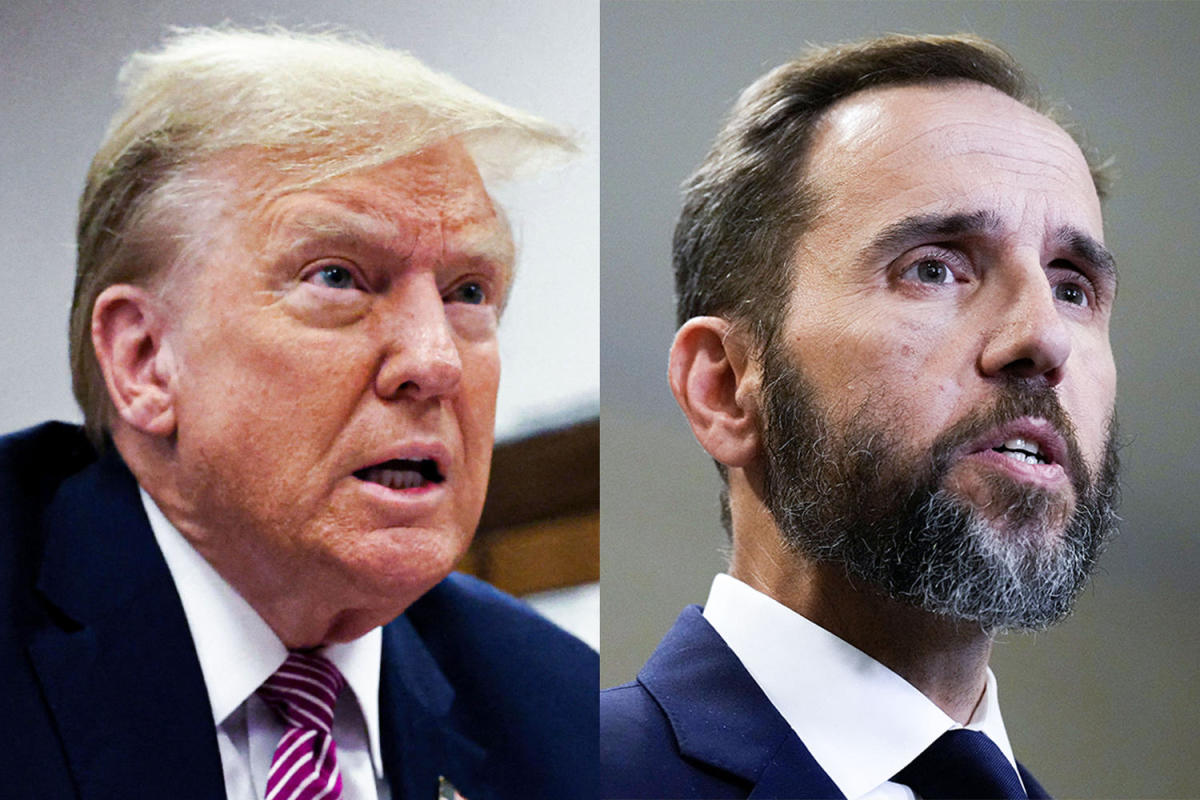WASHINGTON — The Supreme Court ruled on Monday that Donald Trump has immunity for some of his conduct as president in his federal election interference case, but possibly not for other actions, creating an additional hurdle for a lawsuit.
In a new and potentially landmark case about the limits of presidential power, the justices voted 6-3 on ideological grounds to reject Trump’s broad claim of immunity, meaning charges related to his efforts to overturn the 2020 election will not be dismissed. However, they did say that certain actions closely related to his core duties as president cannot be taken by prosecutors.
Chief Justice John Robertswriting for the majority, said further proceedings are needed in lower courts to determine what conduct he can be prosecuted for. Among the conduct that the court has determined is core presidential authority and therefore subject to immunity are Trump’s contacts with Justice Department officials and with Vice President Mike Pence in the weeks leading up to the January 6 attack on the Capitol by his supporters.
“The president is not above the law,” Roberts wrote. “But Congress may not criminalize the president’s conduct in carrying out the executive branch’s responsibilities under the Constitution.”
What that means for the case moving forward remains to be seen. Trump’s lawyer conceded in oral argument in April that at least some of the allegations in the indictment involve private conduct that would not be protected by any immunity defense. Likewise, the Justice Department lawyer arguing the case for special counsel Jack Smith said the prosecution could proceed even if some official acts were protected.
At a minimum, there will be further proceedings before U.S. District Judge Tanya Chutkan to determine what, if any, of the other conduct cited in the complaint is protected. Among the Trump conduct she will review to determine whether it is official conduct are his contacts with state election officials, private parties and members of the public.
The court’s three liberal justices dissented. Justice Sonia Sotomayor wrote that the ruling “parodies the principle that underlies our Constitution and our system of government: that no one is above the law.”
Even if the new procedure doesn’t take much time, it’s unlikely the process will be completed before Election Day. Previously, it was suggested that a trial would not begin until three months after the Supreme Court ruling, which would mean it might not start until early October. The trial itself could take up to 12 weeks.
The case put a national spotlight on the court, which has a 6-3 conservative majority that includes three justices Trump appointed. The court gave Trump an election-year boost when it ruled in March that Colorado could not remove him from the ballot.
The justices were also criticized for delaying Trump’s appeal, which some see as a victory for him, as it meant the trial could not proceed in March as originally scheduled.
Legally, the case was unprecedented, as no president had ever been prosecuted after leaving office. As a result, the court was grappling with a legal question that had never been asked before: whether a president has some form of immunity from his core duties, derived from the constitutional principle of separation of powers, which demarcates the powers of the presidency from other branches of government.
The legal debate focused on Trump’s official actions, with both sides agreeing that a former president does not enjoy immunity for personal conduct.
The Supreme Court stepped in after a federal appeals court ruled on Feb. 6 that Trump was not immune from prosecution, saying that after leaving office he became “Citizen Trump” and should be treated like any other criminal defendant. The Justice Department has long maintained that a sitting president cannot be prosecuted.
The court did not analyze which acts in the indictment could be considered an official act. This fact seemed to irritate a number of judges during the plea.
Trump’s lawyers pointed to a 1982 Supreme Court ruling that upheld presidential immunity from civil lawsuits when the underlying conduct involves actions within the “outer perimeter” of the president’s official responsibilities.
Smith’s team argued that there is no broad immunity that prevents former presidents from being prosecuted for criminal acts committed while in office.
The federal indictment, handed up by a grand jury in Washington in August, included four counts: conspiracy to defraud the United States, conspiracy to obstruct an official proceeding, obstruction and attempted obstruction of an official proceeding, and conspiracy to impede rights, particularly the right to vote.
In another case related to Jan. 6, the court on Friday narrowed the scope of a law that punishes obstruction of an official proceeding. Trump also faces that charge, but legal experts say the new ruling may not affect his case.
Trump, the indictment says, conspired to “overturn the legitimate results of the 2020 Presidential election by knowingly using false claims of election fraud to obstruct the government function of collecting, counting, and certifying those results.”
The indictment centers on Trump’s involvement in a scheme to submit false election certifications to Congress in the hopes of overturning President Joe Biden’s victory. The chain of events culminated in the Jan. 6 riot at the U.S. Capitol.
Trump, who has pleaded not guilty, says he was merely expressing concerns, unsupported by any evidence, that the election was marred by widespread fraud. The case is one of four criminal charges Trump is currently fighting.
This article first appeared on NBCNews.com.
This article was originally published on TODAY.com
